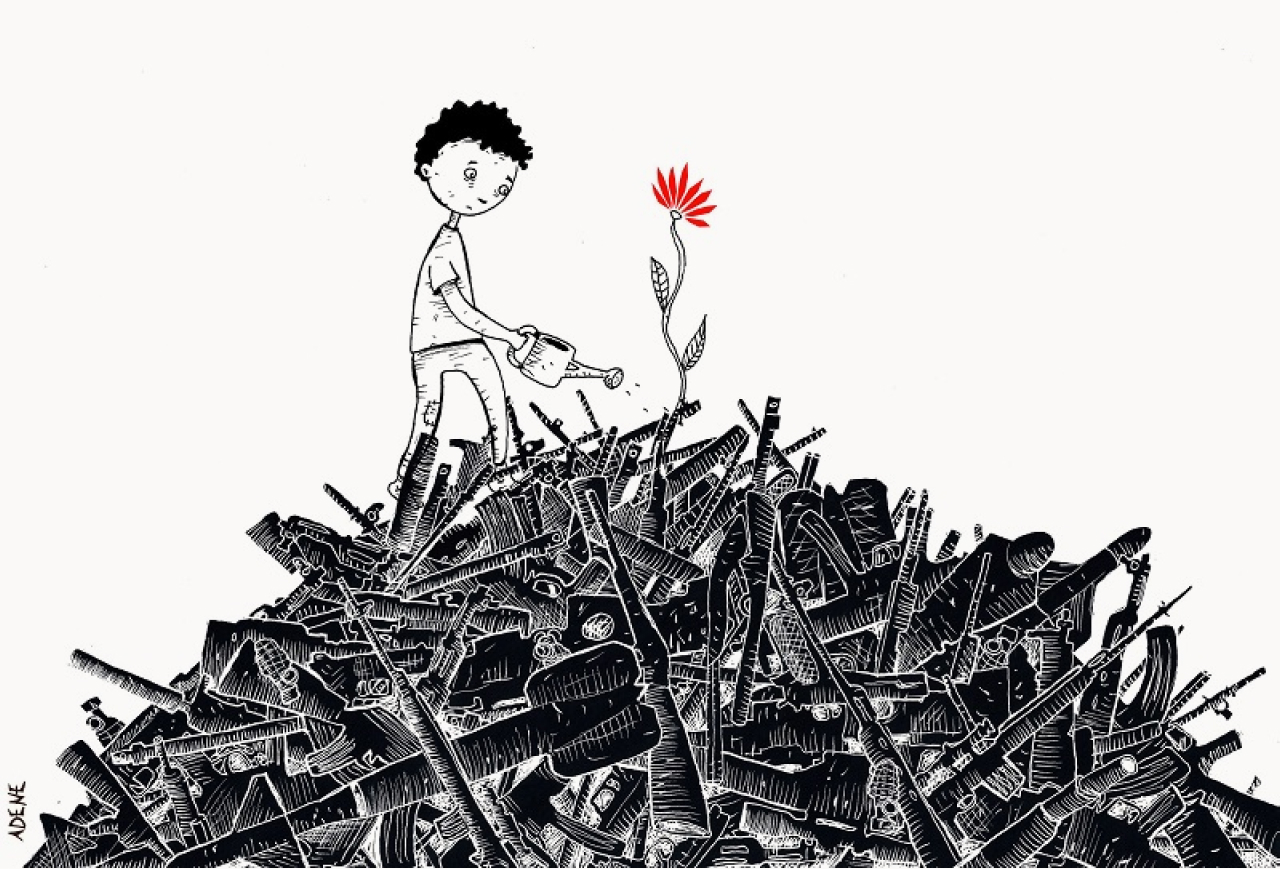In a new op-ed published by the Guardian (July 11, 2019), our colleagues in the Accountability for Starvation project, Mohammad Kanfash and Ali al-Jasem (both of Damaan Humanitarian Organization) argue why accountability for starvation crimes cannot go unaddressed.
Amid a war that may have cost 500,000 lives, we must hold the Syrian government and others to account for the use of hunger as a weapon
In 2017, we started an agricultural project to help hundreds of families survive the blockade by the Assad government, as part of the Damaan Humanitarian Organization’s programme to support civilians in besieged eastern ghouta in Syria.
The project not only provided sustenance to the besieged population, it offered employment opportunities for many people.
Just before the harvest in 2018, our field was bombed by the Syrian regime. The crops, and our hopes, were destroyed. The siege had tightened and the cost of staying alive skyrocketed for hundreds of thousands of civilians in the besieged enclave.
A briefing published last month by the Damaan Humanitarian Organization reveals in detail how the Syrian government, and to a lesser degree, other armed groups, intentionally and repeatedly deprived civilians of food, deploying hunger as a core weapon in their arsenal. It demands accountability for these starvation crimes and highlights the humanitarian catastrophe it caused.
The Assad government has relentlessly used a “kneel or starve” strategy during the war to reduce opposition-held urban enclaves to submission. This has involved sealing off besieged areas and denying access to food and other essentials including water, healthcare, electricity and gas, employment and money. There have also been targeted attacks on bakeries, health facilities, markets, livelihoods and agriculture. Humanitarian relief has been restricted or blocked and relief workers attacked.
While armed groups, notably Islamic State, also besieged areas (including using starvation as a method of war), as the only armed party with recourse to aerial bombardment, the government regime had greater means to enforce blockades. Numerous actions by commanders of the Syrian regime forces constituted grave international humanitarian law violations.
There are no reliable statistics of the number of deaths due to starvation and related diseases, despite strong evidence that starvation tactics are implicated in the overall number of civilian mortalities since 2012. The UN reports hundreds of thousands of deaths, without specifying causes, since the war in Syria began. Human Rights Watch estimates the death toll to be as high as 511,000.
This year, heavy rainfalls had raised hopes for an ample harvest for desperate farmers in Syria. It was estimated that the cereals crop this year would cover 60% of the local market needs. Yet, more than 150,000 hectares (380,000 acres) of wheat and barley fields have been targeted and burned to ashes across the country since the beginning of 2019. This is a tactic seen in the war in Yemen and also to a lesser extent in South Sudan.
This war has no pity. For those who survived conflict and worked so hard to rebuild their lives and livelihoods, to see their crops burn before their eyes is unimaginable.
Syrians have a right to know who perpetrated the destruction, and get justice for these crimes.
It won’t be easy. Responsibility for the bombings is disputed and the multitude of possible perpetrators fosters impunity for these crimes. Suspects include the Syrian regime, Kurdish-dominated militias, opposition factions, and Isis. Personal grudges and a thirst for revenge against former oppressors, namely affiliates of Isis, are also said to be behind some of the fires. Bad economic management and the deteriorating quality of local governance further contributes to the problem and inhibits the capacity to respond.
While accountability may be hard to assign, identifying criminal responsibility in environments spanning wide jurisdictions is the bread and butter of international criminal law. There should be no excuses for not pursuing justice.
But while this is happening, people in Syria need immediate help. Many Syrian lives are believed to have been lost through starvation. The destruction of crops threaten more lives, a fear shared by the UN. Syrians desperately need collective action. As well as accountability, they need machinery and vehicles so they are able to respond to emergencies and combat future fires.
Without this support, and without the pursuit of justice, those who wilfully destroy food, water sources, medicine and other objects indispensable for life will be given a green light to continue the abuse. We can’t let this happen.
Mohammad Kanfash is director of Damaan Humanitarian Organization and Ali al-Jasem is a consultant and researcher at the Center for Conflict Studies at Utrecht University.

